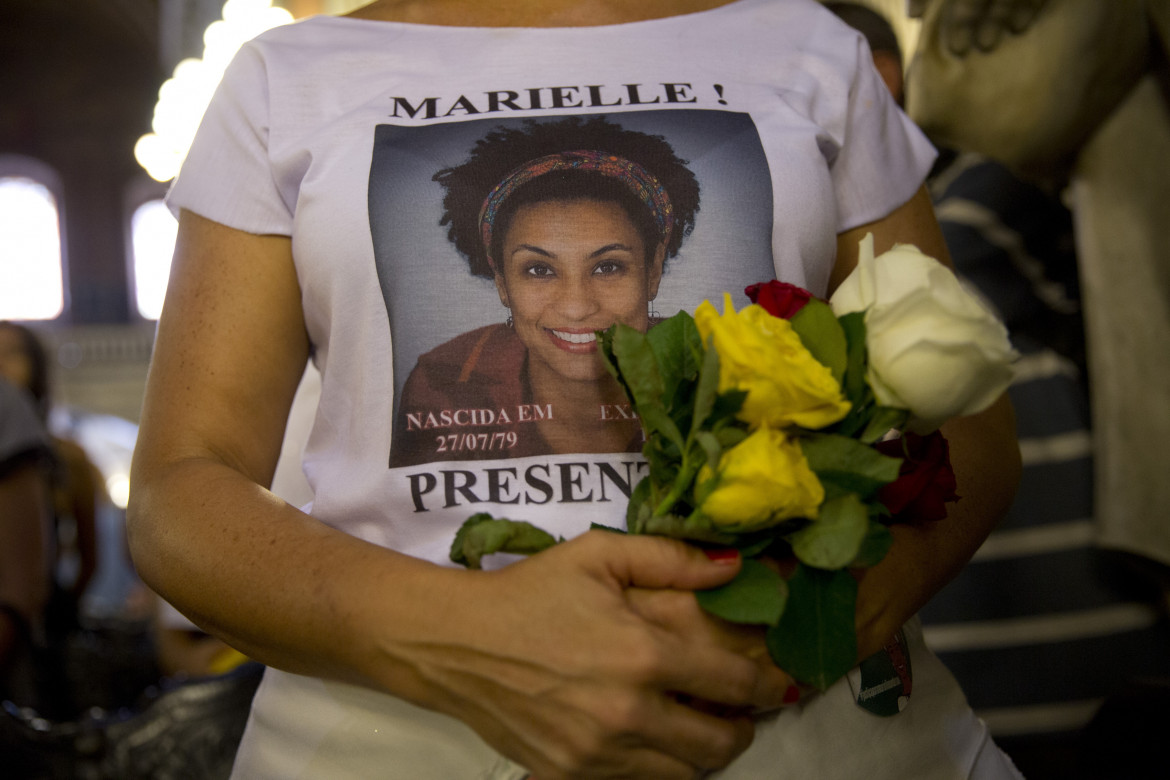Analysis
Three years on, who ordered Marielle Franco’s murder and why?
So far, it is only known that Ronnie Lessa, a retired policeman, and Élcio Queiroz, a former policeman, waited for Marielle and Anderson's car in downtown Rio before firing on the vehicle. The main hypothesis is that the assassination had a political motivation and that militias participated.

This weekend was the three-year anniversary of the brutal murder of Brazilian city councilor Marielle Franco and her driver Anderson Gomes. Militant, feminist, black, resident of Favela da Maré and the fifth-most voted councilor in Rio de Janeiro in 2016, Marielle has become a worldwide symbol of the anti-racist, human rights and LGBTQ+ struggle.
Despite the time that has passed, questions still remain about the circumstances of her death. Why are local and national authorities not cooperating in conducting the case? What is the conclusion of the investigation into the use of federal police weapons in the crime? Who turned off the cameras on the street Marielle and Anderson were driving through that evening? Was there an attempt to mislead the investigation? And the main one: who ordered Marielle’s murder and why?
These and other issues are the subject of a document published by the Marielle Franco Institute, an organization created by Marielle’s family to perpetuate her memory. The family is constantly asking for answers from the Rio de Janeiro authorities who are conducting the investigation. However, they are often faced with silence. In the last week they tried to meet the governor of the state, Cláudio Castro, and the attorney general, Luciano Mattos, but they have not received any response, as reported by the activist’s sister, Anielle Franco, in a press conference held on Friday March 11.
So far, it is only known that Ronnie Lessa, a retired policeman, and Élcio Queiroz, a former policeman, waited for Marielle and Anderson’s car in Rua dos Inválidos in downtown Rio before firing on the vehicle. Both are in a maximum security prison and will be subjected to a popular trial, a process in which 25 citizens, together with the judge, will decide whether the accused are guilty. The main hypothesis is that the assassination had a political motivation and that militias participated.
According to Jurema Werneck, executive director of Amnesty International in Brazil, the subsequent changes in the bodies responsible for the investigation and the lack of transparency have hampered a swift and impartial investigation. “In these three years we have had three governors, two attorneys general, three police chiefs, three prosecutors. There have been five changes in Rio’s public safety. The Brazilian authorities cannot send a message of impunity and tolerance of political violence,” says Werneck, which warns: “As long as the principals are free and unknown, no one can feel safe.”
“We can’t wait another ten years for black women to be elected,” Marielle said a few hours before she was killed. Her speech became a prophecy: two years later, in 2020, in the last Brazilian administrative election, 13 black women were among the most voted candidates in the biggest cities of Brazil. Among the elected councilors, more than 70 have committed themselves to the so-called Marielle Agenda, which brings together bills with anti-racist, feminist, LGBTQ+ and popular practices and guidelines inspired by the work done by the activist.
Politicians attuned to these ideals, however, are often at risk. In Rio de Janeiro, the four black women elected with the Socialism and Freedom Party (PSOL) have already registered threats of a political nature. “We need to protect these women and send a message to those who want to silence Marielle’s legacy. People who fight for justice, rights, dignity must be protected because they are an asset of society,” says Jurema Werneck.
For Federal MP Marcelo Freixo (PSOL), Marielle’s friend and former comrade, the assassination revealed a brutal side to Brazil. To which the world reacted: “The demonstrations against Marielle’s death,” he observes, “show the strength of what she represented. This company capable of killing Marielle Franco is not the company we want.”
The city of Florence dedicates a terrace to Franco
Marielle Franco’s message went around the world and also reached Florence. From March 15, the activist will be the first black Brazilian woman to have her name in a public space in Italy, on the terrace of the Biblioteca delle Oblate. The title is the result of the collaboration between the CGIL of Florence and the Casa do Brasil in Florence which made a specific request to the municipality. “This terrace is not just any space. With a view of Brunelleschi’s dome, it is a symbol of the Italian Renaissance. May the memory of Marielle be reborn here and offer young people the chance to reflect on justice, human rights, diversity, all that Marielle embodied,” comments Ana Luiza Oliveira de Souza of the Casa do Brasil in Florence.
Originally published at https://ilmanifesto.it/brasile-la-profezia-di-marielle-franco/ on 2021-03-14
